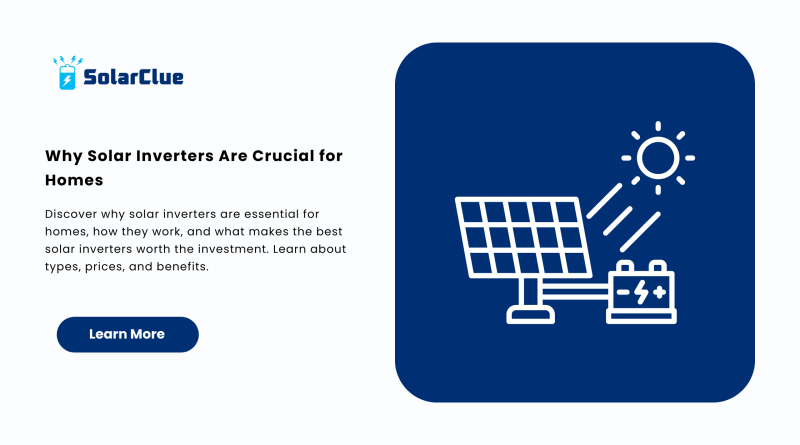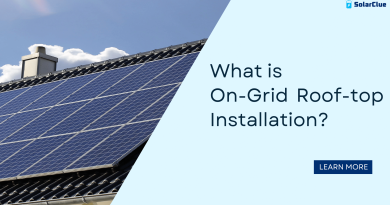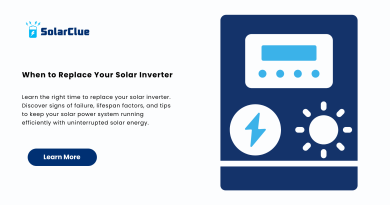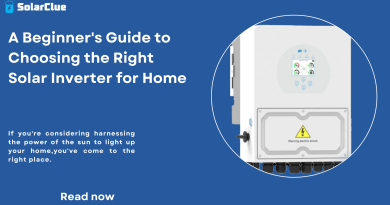Why Solar Inverters are Crucial for Homes
In the age of sustainable living, solar energy has emerged as a reliable and eco-friendly power solution. But while solar panels often steal the spotlight, solar inverters play a silent yet indispensable role in making solar energy usable. Simply put, a solar inverter converts the direct current (DC) produced by your solar panels into alternating current (AC), which powers your home appliances.
Table of Contents
- 1 What Makes Solar Inverters Essential for Home Solar Systems
- 2 Types of Solar Inverters You Should Know
- 3 Advantages of Installing Solar Inverters at Home
- 4 Factors That Influence Solar Inverters Price
- 5 How to Choose the Best Solar Inverters for Your Home
- 6 Common Mistakes to Avoid When Buying a Solar Inverter
- 7 Installation Tips for Maximum Efficiency
- 8 Maintenance and Lifespan of Solar Inverters
- 9 How Solar Inverters Impact Energy Savings
- 10 Future Trends in Solar Inverter Technology
- 11 Solar Inverters and Net Metering
- 12 Government Incentives and Subsidies
- 13 Environmental Benefits of Solar Inverters
- 14 Final Thoughts
- 15 FAQs
What Makes Solar Inverters Essential for Home Solar Systems
Without solar inverters for home setups, the electricity generated by solar panels would remain unusable. AC is the standard electrical current used by home devices, which means inverters are crucial in any residential solar installation. They’re the brain of your solar system—monitoring output, optimizing performance, and ensuring safety.
Types of Solar Inverters You Should Know
1. String Inverters
Ideal for homes with non-shaded roofs, string inverters connect multiple solar panels in series. They’re cost-effective but less efficient when panels are partially shaded.
2. Microinverters
Mounted on individual panels, microinverters offer higher efficiency and are great for roofs with variable shading. They also allow for better monitoring of each panel’s performance.
3. Hybrid Inverters
These versatile inverters combine solar inverter and battery inverter functionalities, making them perfect for homes that use energy storage systems.
Advantages of Installing Solar Inverters at Home
- Energy Conversion: Converts unusable DC into usable AC.
- System Monitoring: Modern inverters provide real-time data on your system’s performance.
- Grid Interaction: Facilitates smooth interaction between your home and the grid.
- Safety Features: Protects the system from overloads and grid outages.
Factors That Influence Solar Inverters Price
1. Type of Inverter
Each type of inverter comes with a different price tag. Solar inverters price for microinverters is generally higher due to their advanced features, whereas string inverters are more affordable.
2. Brand and Efficiency
Best solar inverters come from reputed brands with higher efficiency ratings, which can affect the cost.
3. Capacity and Technology
Inverter capacity (in kW) and smart features like Wi-Fi monitoring or AI-based optimization also impact the price.
How to Choose the Best Solar Inverters for Your Home
Choosing the best solar inverters involves assessing your home’s energy needs, roof orientation, budget, and potential shading issues. Always look for inverters that offer good warranties, remote monitoring, and compatibility with solar batteries.
Common Mistakes to Avoid When Buying a Solar Inverter
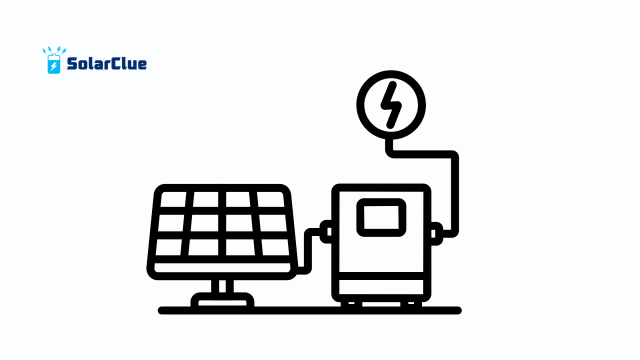
- Ignoring future energy needs
- Choosing an incompatible inverter for your solar panel type
- Overlooking warranty and service terms
Installation Tips for Maximum Efficiency
- Ensure professional installation for safety and efficiency
- Proper placement away from direct sunlight
- Regular maintenance to prevent dust and moisture build-up
Maintenance and Lifespan of Solar Inverters
Most solar inverters have a lifespan of 10–15 years. Regular maintenance and timely firmware updates can extend their life and optimize performance.
How Solar Inverters Impact Energy Savings
Efficient inverters maximize energy conversion, which translates into greater savings on electricity bills. They also enable better tracking of energy usage, helping homeowners adjust consumption patterns.
Future Trends in Solar Inverter Technology
The future is bright with AI-powered smart inverters, real-time energy analytics, and improved integration with home automation systems. Expect better efficiency, remote diagnostics, and smarter energy management.
Solar Inverters and Net Metering
Modern inverters enable seamless participation in net metering programs, allowing homeowners to sell excess energy back to the grid for credits.
Government Incentives and Subsidies
Several government programs offer financial incentives for installing solar inverters. Always check with local authorities or your solar provider to explore available rebates.
Environmental Benefits of Solar Inverters
By enabling the use of solar energy, inverters help reduce carbon footprints and reliance on fossil fuels, promoting a greener planet.
Final Thoughts
Solar inverters may not be as visible as solar panels, but they are the true enablers of clean energy in your home. From energy conversion to smart monitoring, they serve as the nerve center of your solar system. Understanding their function and selecting the right one can make a big difference in the efficiency and longevity of your solar setup.
To explore a variety of options, pricing, and reviews, don’t forget to check out solarclue.com. And for more in-depth guides like this, visit our blog at blog.solarclue.com — your trusted source for solar insights!
FAQs
1. What is the primary function of a solar inverter?
A solar inverter converts DC power generated by solar panels into AC power usable by home appliances.
2. How do I choose the best solar inverter for my home?
Consider your energy needs, type of roof, shading, and whether you plan to add a battery system.
3. Are solar inverters expensive?
Solar inverters price varies by type, brand, and features. There are affordable and premium models to suit every budget.
4. What is the average lifespan of a solar inverter?
Typically, 10–15 years with proper maintenance.
5. Can I install a solar inverter myself?
Professional installation is highly recommended for safety and warranty compliance.

